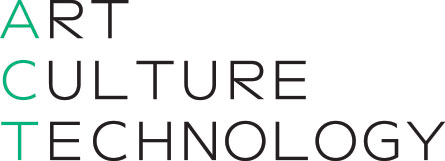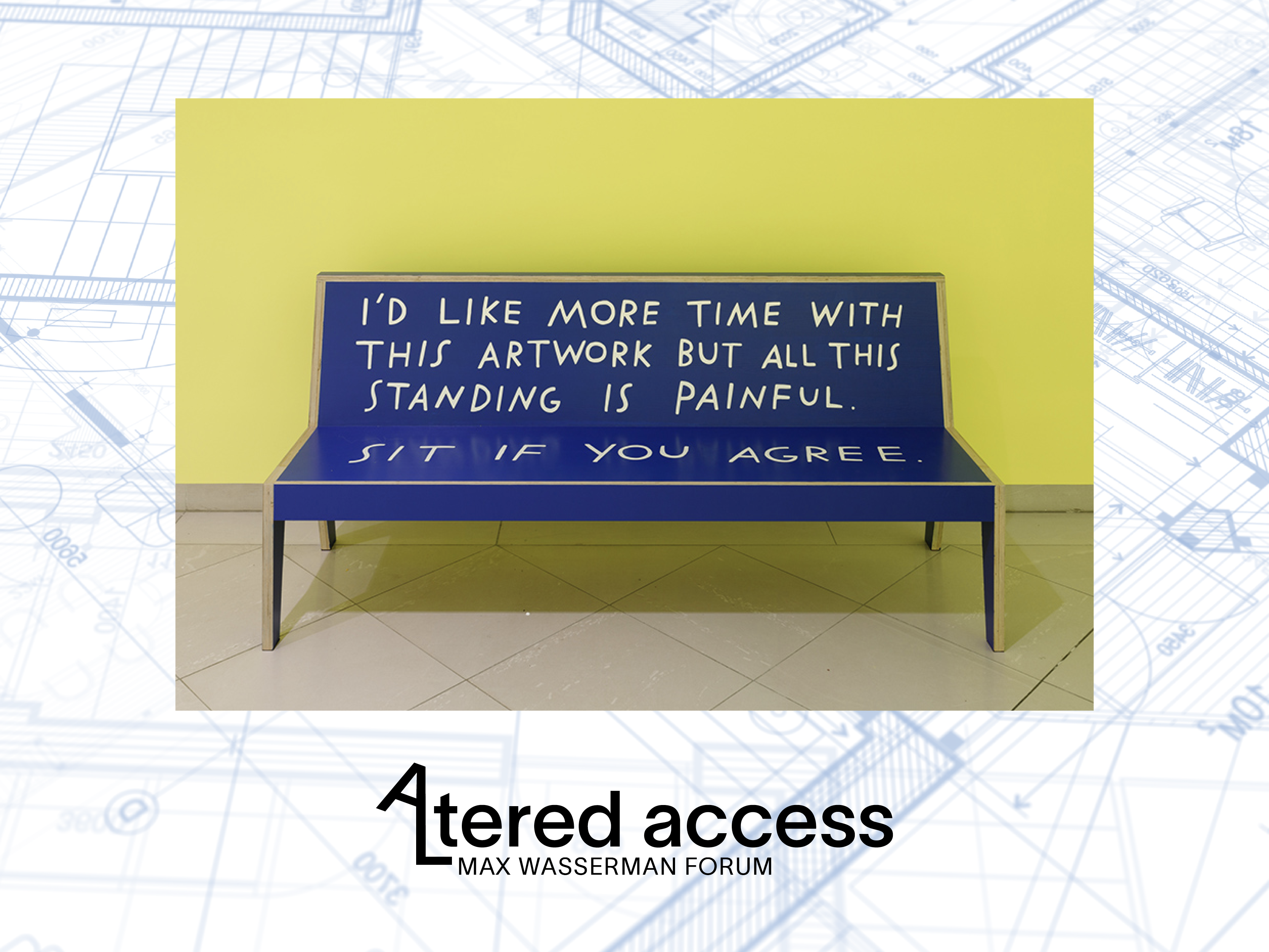Will See (Owolabi Aboyade) performing at the closing reception for "Sick Time, Sleepy Time, Crip Time," 2019 at Red Bull Arts Detroit (Detroit, MI). From left: Taraneh Fazeli, Will See, Wayne Curtis. Photo by Joe Gall
Altered Access Panel: To Heal
To attend To Build virtually, please navigate to the livestream link by 3:30 PM on Saturday April 22.
Disability studies and disability justice address the myriad ways the word “cure” has been weaponized historically.
They also share the valuable knowledge disabled and chronically ill people gain through surviving in and seeking alternatives to ableist and racist capitalist systems. Within the ideology of cure, disabled body-minds are broken and need to be fixed. But to critique how the ideology of curative discourses sees disability as objectively undesirable does not preclude individuals from pursuing a variety of ameliorating treatments. While the language of healing holds a complicated position in an anti-cure politics, the framework of healing justice offers one community-centered approach to healing beyond traditional biomedical ways. To address widespread trauma from systemic violence and oppression and heal collectively, anti-ableist forms of healing justice revive ancestral healing practices diminished via slavery and colonialism toward new anticapitalist and antiracist approaches.
While art outside of modern Western canons has long been tied to divination, medicine, ancestral and spiritual ritual, and other cultural approaches to healing what ails, a recent focus on access in mainstream contemporary art has been accompanied by greater interest in art with a healing function. This panel brings together creative practitioners who investigate—in their collaborations and individually—what it means to use the space of art for healing themselves, their communities, and natural kin, as well as for instantiating new modes of care. They all work with a broad conception of art that extends beyond an institutionally validated art world to relational and community-based forms of culture and creativity toward social justice. Beyond exploring art’s role in healing, we will also consider if institutions like museums, hospitals, or schools can be spaces for healing or care and the labor associated with that possibility. Our alignment with different strategies—from understanding, disrupting, transforming, and abolishing systems like the museum or Medical Industrial Complex—will be discussed.
Weblink to access livestream will be available the week of event.
About the Speakers
Owólabi Aboyade
Owólabi Aboyade (William Copeland) is a father, an MC (Will See Music), writer, editor, climate justice organizer, and decolonizing facilitator from Detroit. He makes hip-hop anthems, zines, community care circles, and cultural exchanges and writes articles that explore what liberation can look, feel, and sound like.
As a writer, Aboyade shares his political analysis, creative nonfiction, poems, and short stories in various publications, including Geezmagazine, Audubon magazine, Hood Communist, and more. He is also the co-creator of Bullet*Train, a digital zine chronicling Detroit’s revolutionary culture in 2020.
Navigating kidney failure since 1990, an acute health crisis in 2017 led him to organize around disability justice and community care. He cofounded and facilitates Relentless Bodies, a Detroit-based creative disability and healing justice collective.
Cannach MacBride
Cannach MacBride is a white Scottish artist, writer, and editor. They are undertaking PhD research at University of the Arts London on more-than-aural listening, based in plural modes of attention and awareness, as a research methodology and a creative practice for honouring and digesting the depth of political-relational dependencies, and offering due care and responsibility. With Taraneh Fazeli and Relentless Bodies, they are co-editing Sick Time, Sleepy Time, Crip Time – a field guide, a book about co-creating accessible worlds by centering, rather than including, access.
Taraneh Fazeli
Taraneh Fazeli is a chronically ill Iranian-American curator. Before becoming an independent curator, she worked at arts organizations such as Artforum, e-flux, Triple Canopy, and The New Museum. Her recent approach to curating and cultural organizing is rooted at the intersection of the disability, diasporic, queer, and creative communities that she belongs to. She received a Spring 2022 Warhol Foundation Curatorial Fellowship towards a forthcoming field guide for co-creating accessible worlds through art, culture, and organizing. This book emerges from the homonymous peripatetic exhibition and community program series she curated, “Sick Time, Sleepy Time, Crip Time: Against Capitalism’s Temporal Bullying,” which addressed the politics of disability, health, race, accessibility, and care (2016-20). Her primary co-editor is Cannach MacBride and Relentless Bodies, a BIPOC healing and disability justice creative collective she cofounded with Owólabi Aboyade and Aiko Fukuchi, is co-editing a section. Tools and case studies within will address the overlapping issues that occur when ableist modern-colonial institutions attempt to “include” disabled, racialized, and/or Indigenous bodyminds without fundamentally addressing their existing structures, while also providing routes to co-creating spaces that operate otherwise.
The Max Wasserman Forum
The Max Wasserman Forum on Contemporary Art was established in memory of Max Wasserman (MIT Class of 1935), a founding member of the Council for the Arts at MIT. This public forum was endowed through the generosity of the late Jeanne Wasserman and addresses critical issues in contemporary art and culture through the participation of renowned scholars, artists, and arts professionals. The Forum is organized and presented by the MIT List Visual Arts Center.




